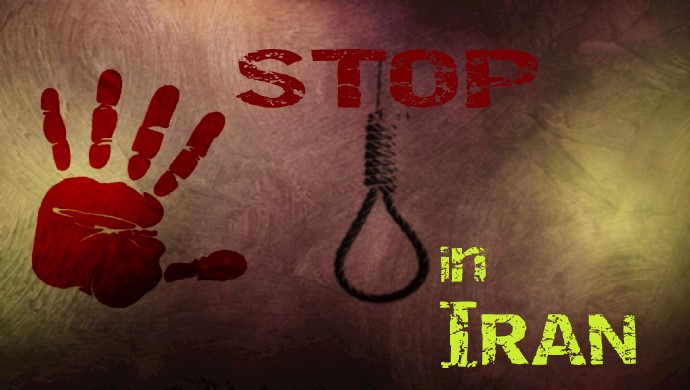Analysis by PMOI/MEK
October 9, 2019—Since 2003, October 10 has become known as the World Day Against the Death Penalty. The World Coalition Against the Death Penalty considered this initiative as a global effort to abolish the death sentence across the world.
World day against the #Deathpenalty
Join Twitter storm to call 4 end to executions in #Iran
Date: Oct 10, 2019
Time: 8 pm CET / 2pm EST#HumanRights #noDeathPenalty #NoImpunity4Mullahs pic.twitter.com/A0nCCwG6HR— IRAN HRM (@IranHrm) October 9, 2019
This year’s anniversary of the World Day Against the Death Penalty
Many governments and prominent NGOs support this day. As a tradition, on each anniversary of the World Day Against the Death Penalty, human rights activists focus on a particular theme to persuade governments that are still using this violent sentence to stop it.
“Iran is the leading state in executions per capita, second only to China in terms of figures. Iran also tops the charts in the number of executions of minors and juvenile offenders.”#IranRegimeOutOfUNhttps://t.co/akOVweQ37V
— People’s Mojahedin Organization of Iran (PMOI/MEK) (@Mojahedineng) February 26, 2019
This year, the World Day Against the Death Penalty is titled, “Children, Unseen Victims,” to raise public awareness on the situation of children who lose a parent because of the death sentence. In fact, these children carry a heavy emotional and psychological burden. Unfortunately, this trauma can occur at any stage of the capital punishment of a parent, followed by a long-term impact, even till adulthood.
Why does the Iranian regime insist on death sentence?
However, several states officially practice the death penalty, occasionally in public. Among them is the Iranian regime, which brutally insists on using gallows as a vital part of its outdated constitution.
History has proven that violent punishments won’t stop crimes. Nonetheless, the theocratic regime ruling Iran attempts to resolve all the social problems through executions. According to Iran Human Rights Monitor, the religious fascism has executed 199 people in 2019, with July and August accounting for the highest number of executions. These figures indicate a rise compared to the same period last year, which is contrary to some claims that attempt to pretend the regime is moving toward becoming a normal country.
1988 Massacre, a mass killing against the Iranian nation
In fact, the mullahs’ regime practices the death penalty and other savage punishments such as flogging, stoning, severing fingers, etc. to terrorize the Iranian society, especially the young generation. Officials ironically attempt to annihilate the spirit of resistance and passion for freedom.
In this context, it is worth reminding that 31 years ago, regime founder Ruhollah Khomeini tried to guarantee his regime’s survival by issuing a fatwa (religious edict) ordering his authorities to massacre all of the dissidents in Iranian prisons. Following this brutal fatwa, the Iranian regime executed more than 30,000 political prisoners in the span of a few weeks in the summer of 1988 and dumped their bodies in unmarked mass graves. Most of the victims were members and supporters of the People’s Mojahedin Organization of Iran (PMOI/MEK).
In addition to slaughtering political prisoners, the regime’s authorities extended their crimes to the families of the victims. Families were kept in the dark about the location of the graves of their loved ones. Also, regime officials prevented the families from holding ceremonies for the executed prisoners and threatened to persecute them if they told about their fate and story to others.
Even after several decades, regime authorities continue to harass families who gather at mass burial sites to commemorate the victims. In 2010, the regime executed prominent Iranian political prisoner Ali Saremi because he had participated in a ceremony at the Khavaran mass grave. Saremi had spent a total of 23 years in the regime’s dungeons.
Call For Justice
However, thanks to the initiative of Mrs. Maryam Rajavi, the president-elect of the National Council of Resistance of Iran (NCRI), a strong movement titled, “Call for Justice,” was launched three years ago. This movement enjoys international support by prominent lawyers, human rights experts, and former officials who aid the Iranian opposition and the PMOI/MEK to bring the perpetrators of the 1988 massacre to justice.
“Call for Justice” movement also succeeded to record the massacre of political prisoners in 1988 as a crime against humanity, recognized by the late Asma Jahangir former United Nations Special Rapporteur on the human rights situation in Iran.
Live – Conference
Call for Justice – #1988Massacre
“Masterminds and perpetrators must face justice in international tribunals”
Ashraf 3 – Tirana, Albania
July 15, 2019#Iranhttps://t.co/EH2lTRh4Ov— People’s Mojahedin Organization of Iran (PMOI/MEK) (@Mojahedineng) July 15, 2019
Even though 31 years have passed, the perpetrators of the 1988 massacre continue to hold positions of power in Iran. Regime authorities regularly defend their crimes and take pride in the mass killing of MEK members and other regime opponents. This is why many jurists and lawyers believe that the 1988 massacre is an ongoing crime against humanity.
As we commemorate World Day Against the Death Penalty, it is important that we remember the suffering and plight of the Iranian people and the victims of the 1988 massacre. Holding the regime and its officials to account for this crime will be a major step toward abolishing executions in Iran and savings the lives of many Iranians who are on death row, including teenagers, women, ethnic and religious minorities, and political dissidents.





